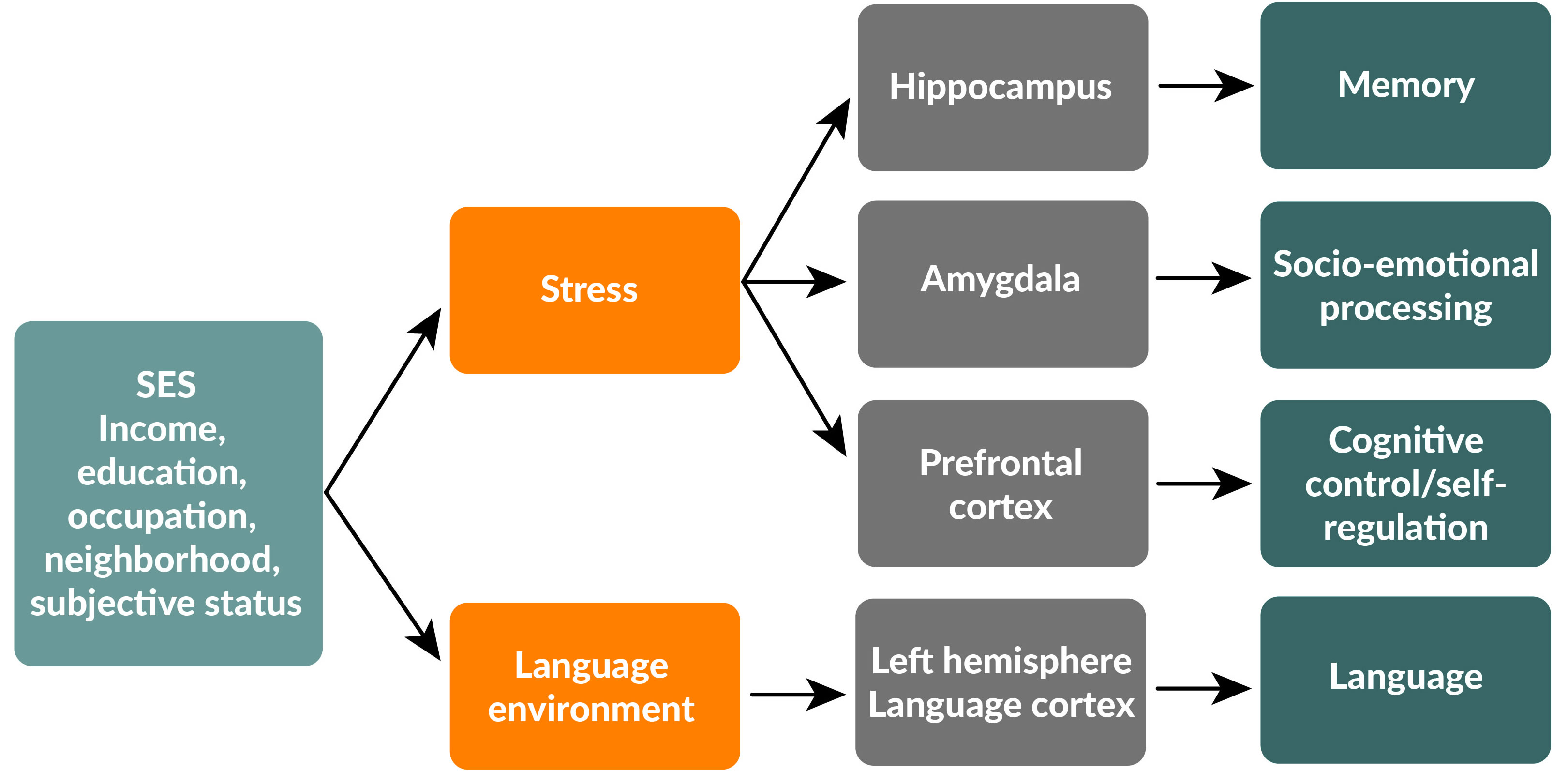
Feature
September | No. 1-2019
Research has documented a strong association between children growing up in poverty and being more likely to struggle in school than their more advantaged peers, resulting in an income achievement gap.
Ongoing research, however, is moving beyond correlation to test a causal relationship between growing up in poverty and development in key parts of the brain that govern learning and behavior.
Findings suggest that aspects of poverty that affect brain development go beyond limited financial resources to include neighborhood violence, low-quality schools, environmental toxins, and unstable family life.
Researchers see suggestive evidence that the effects of poverty can be reversed by identifying and offsetting negative environmental influences.

Source: N. H. Brito and K. G. Noble, “Socioeconomic Status and Structural Brain Development,” Frontiers in Neuroscience 8 (2014).
Note: SES = socioeconomic status.
Policy/Practice
- Lisa Gennetian, How Policy Informed by Behavioral Science Can Help Children in Poverty, Behavioral Scientist July 3, 2018

Enhanced income can enable parents to invest in themselves and their children; reduce economic stressors and support more responsive parenting; and can reduce the mental drain of poverty.Lisa Gennetian, Baby's First Years study researcher
- “Baby’s First Years” Offers First U.S. Study to Assess Impact of Poverty Reduction on Infant and Toddler Development, Early Learning Nation
 I understand that there’s a concern about giving unrestricted cash as a policy intervention,” “What this study is asking is whether or not, as a matter of public policy, is it a straightforward way to achieve the important goal of early childhood development.Matt Klein, executive director of the New York City Mayor’s Office for Economic Opportunity
I understand that there’s a concern about giving unrestricted cash as a policy intervention,” “What this study is asking is whether or not, as a matter of public policy, is it a straightforward way to achieve the important goal of early childhood development.Matt Klein, executive director of the New York City Mayor’s Office for Economic Opportunity- Money for Moms, The Indicator from Planet Money, National Public Radio